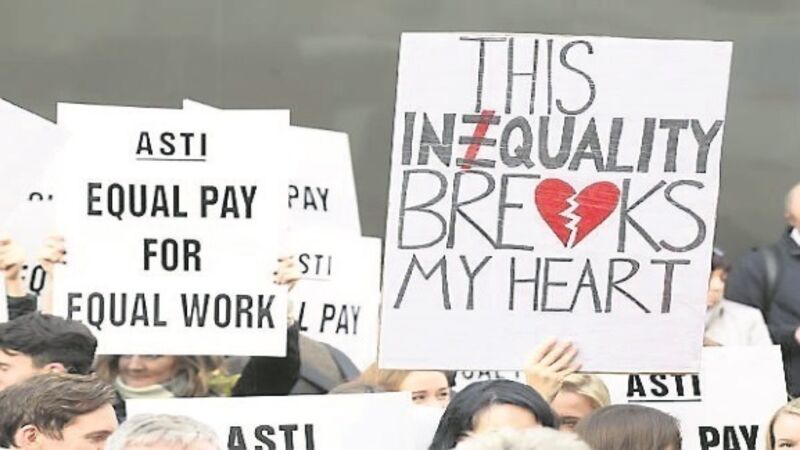Pay claims only mean bad times

The ongoing outburst of industrial relations discord in the public and semi-state sector is very much a part of the painful legacy of the economic and financial crisis that cast the nation into a dark hole from 2008 onwards. Public sector workers took a significant hit during the crisis in terms of pay, pensions and general conditions of employment.
One particularly obnoxious feature of the public sector pay adjustments was the fact that the relevant unions allowed new teachers be taken on at lower pay levels than their longer-serving peers. However, faced with many equally unpalatable options, the relevant unions clearly believed that this was the least worse option.
The government of the day had little choice other than to implement painful measures, given that the powers that be in the EU had hung the country out to dry in relation to the handling of the banking crisis.
The public finances quite simply had to be taken in hand in a vigorous fashion in order to protect the nation from bankruptcy. Given that public sector pay is a key element of overall government expenditure, the size of the bill had to be addressed. The route chosen was to target pay and conditions, rather than implement a programme of compulsory redundancy.
Many private sector workers were forced to emigrate, and many of those that managed to hold on to their jobs, had to take significant pay cuts. Furthermore, many in the private sector now look across with a certain degree of envy at public sector workers who actually possess a pension that will guarantee some level of income when they retire.
The public sector unions now believe payback time has arrived and industrial unrest is raising its ugly head. By the time this newspaper is on the streets, those same streets may be lacking a Garda presence. Following the withdrawal of supervisory and substitution duties by ASTI, many schools will not be able to re-open after the Halloween break.
Teachers who were on the picket line last week told me that they got a lot of support from the public, with cars honking as they passed and so on. Indeed, much of the public discourse we hear is pretty supportive of the striking public sector workers. People realise the valuable service that teachers and the forces of law and order provide.
Be that as it may, the big question is where the money will come from to pay these public sector pay demands and those others that will inevitably arise over the coming months.
The public finances are still in a bad place and the ability to deliver significant increases in the public sector pay bill is constrained. Most probably this will involve a diminution in the level of public services, including such actions as bed closures. It is a pity the Government adopted such a scatter gun approach to Budget 2017 and spread €1.3bn so pathetically thinly over so many areas.
These are worrying times.



